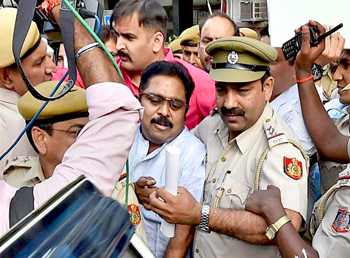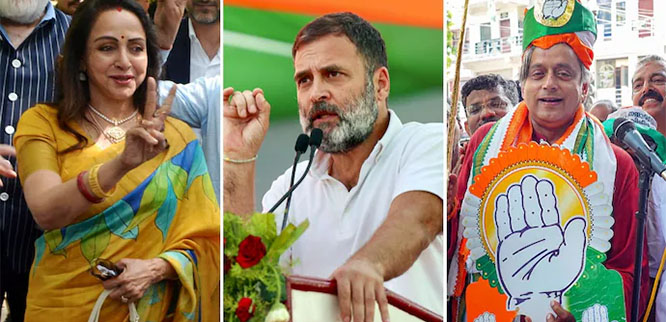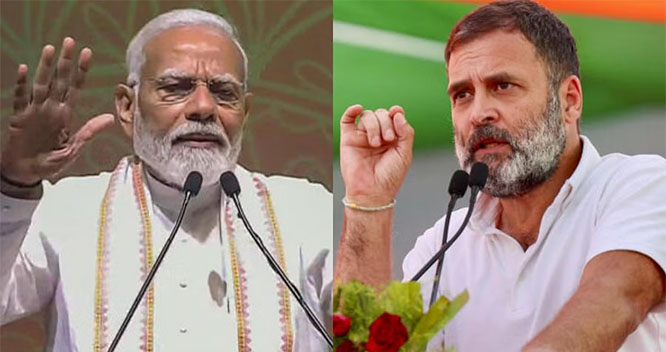New Delhi, Apr 28: An alleged hawala operator was arrested here today in connetion with the Election Commission bribery case in which three persons, including AIADMK (Amma) leader TTV Dhinakaran, were in police custody. Naresh was apprehended at the Delhi Airport for his alleged involvement in "illegal transfer" of money to arrested middleman Sukesh Chandrasekhar by Dhinakaran, said a senior police officer. Praveer Ranjan, joint commissioner of police (crime), confirmed the arrest but did not elaborate. Yesterday, Dhinakaran was taken to Chennai and searches were conducted at his residence in the city as part of the probe.

Dhinakaran was arrested on April 25 night here following four days of questioning for allegedly attempting to bribe an unidentified EC official to get the undivided AIADMK's 'two leaves' election symbol for his faction. Police had earlier said Sukesh Chandrasekar, who was the first to be arrested, had struck a deal for Rs 50 crore to help the AIADMK (Amma)faction keep the two leaves symbol. They had seized Rs 1.30 crore from Chandrasekar when he was arrested from a five-star hotel in Delhi on April 16.
Dhinakaran has been accused of allegedly arranging the amount from undisclosed sources and getting it transferred from Chennai to Delhi through illegal channels. Mallikarjuna was arrested for allegedly helping Dhinakaran transfer this money from Chennai to Delhi, police had said. Police are also verifying whether Chandrasekar had approached any EC official for getting a favourable verdict for Dhinakaran's faction. Dhinakaran, who was appointed deputy general secretary by jailed AIADMK chief V K Sasikala, is facing a revolt by an influential section of state ministers who have decided to keep the two out of party affairs.








Comments
Add new comment